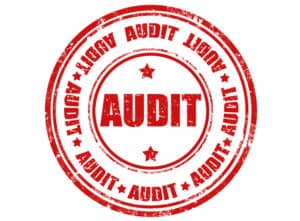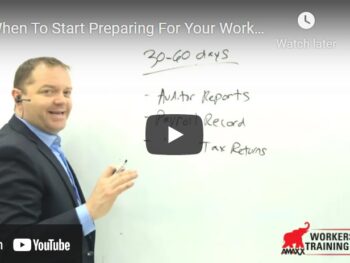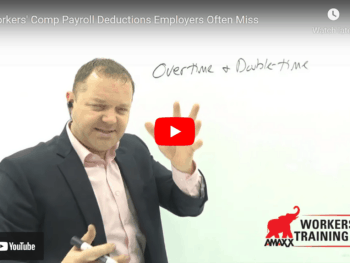
Self-insured employers face audits and questions from the state insurance department auditors.
Both types of audits are done to ascertain that premiums are proper, and /or the employer can continue to properly fund their workers’ compensation claims.
Prepare
Proper preparation for the audit can make the entire process less cumbersome and properly document the data being given to the auditor. Do not wait until notice of the impending audit arrives which could be as short as several weeks. Being on short notice can cause disorganization of information, missing information, inadequate information, and create more questions from the auditor.
Most employers have gone through prior audits and are generally aware of what will transpire. Go to the last audit report and study the information used, and look for errors that were made in working with the auditor. If this is the first audit, write to the auditor and request a listing of documents and information that they will be seeking.
Review all job descriptions to ascertain that the job fits the proper NCCI Class code descriptions’. Leaving descriptions that can be interpreted for two class codes will certainly allow the auditor to use a higher rated code value that favors the insurance carrier.
Review all payroll records. Be sure the employee is on the proper corporate payroll. Employers using outside contract employees need to be certain that the contract employees are not mixed with corporate employees. Document the contract and provide copies of other insurance provisions by way of hold harmless agreements and insurance certificates showing the employer as an also insured on the contractors’ insurance policy.
Be prepared to explain excess earnings due to unusual situations. An unexpected sale that required extra overtime is an example.
On the day before the audit place documents and physical evidence in chronological order. Place the audit items in a private comfortable room. Arrange for IT hook-up so the auditor can review electronic data.
During the Audit
When the auditor arrives be friendly and professional. Take the auditor on a housekeeping tour of the office, coffee, photocopying, restrooms, lunch facilities if on-premises.
Designate one or two senior management persons who are totally familiar with the corporate programs, audit procedures, and the materials gathered for the audit, to act as liaisons between the company and the auditor.
Auditors may be trying at times with their questioning and interpretations. Others may have attitude issues. It is also natural to feel threatened by an audit. This could lead to unpleasant situations. Remember it is the auditor’s responsibility to ascertain that the premiums were properly established based on sound financial data.
Keep cool. Do not lose your temper. Do not make snide remarks or comments. Do not become hostel.
Be cooperative. Answer all questions accurately. Do not embellish or furnish any information. Keep answers short, direct, and on point.
It is best to leave auditors alone and in private. However, a mid-morning or mid-afternoon break or stop by is suggested. This gives an opportunity to see how the audit is progressing and address any concerns or findings that may be adverse. Keep the discussions only on the audit.
Auditors are obligated to professional conduct. They are not allowed to divulge information to any unauthorized persons. Their reports must be confidential. Normally only the insurance company and the insured are copied on their reports. Auditors are not authorized to review copyrights, patents, business secrets, and confidential industry procedures. An example is ingredients in a cookie recipe.
Inviting the auditor to lunch, dinner, or office parties is not recommended. Supplying tickets to the theatre or sporting events should also be avoided. These can be interpreted as bribes or tokens to seek special favor.
Wrap-up Meeting
Set a date, time, and private place to have a meeting before the auditor leaves the premises. Invite only those who need to know. It is suggested that a draft of the auditor’s report be available. Go over all the findings. Attempt to resolve or make any corrections where discrepancies or confusions occur. Be completely frank and honest as well as cordial.
Challenging the Audit Findings
Should the wrap-up meeting fail in reaching agreements and the published report is not in keeping with all facts, prepare a written challenge at once and supply the necessary documentation to sustain a defense position. Also, request that any adverse premium changes be held in abeyance until the challenge is resolved. This may require legal assistance.
Summary
Premium audits are a fact of life. They are conducted for the benefit of the insurance carrier. It is necessary to properly prepare for the audit. Supply all necessary information and be cooperative with the auditor. Maintain business professionalism in all dealings, challenges, and appeals. Use legal counsel where necessary.
 Author Michael Stack, CEO Amaxx LLC. He is an expert in workers’ compensation cost containment systems and helps employers reduce their workers’ comp costs by 20% to 50%. He works as a consultant to large and mid-market clients, is a co-author of Your Ultimate Guide To Mastering Workers Comp Costs, a comprehensive step-by-step manual of cost containment strategies based on hands-on field experience, and is the founder & lead trainer of Amaxx Workers’ Comp Training Center, which offers the Certified Master of Workers’ Compensation national designation.
Author Michael Stack, CEO Amaxx LLC. He is an expert in workers’ compensation cost containment systems and helps employers reduce their workers’ comp costs by 20% to 50%. He works as a consultant to large and mid-market clients, is a co-author of Your Ultimate Guide To Mastering Workers Comp Costs, a comprehensive step-by-step manual of cost containment strategies based on hands-on field experience, and is the founder & lead trainer of Amaxx Workers’ Comp Training Center, which offers the Certified Master of Workers’ Compensation national designation.
Contact: mstack@reduceyourworkerscomp.com.
Workers’ Comp Roundup Blog: https://blog.reduceyourworkerscomp.com/
©2021 Amaxx LLC. All rights reserved under International Copyright Law.
Do not use this information without independent verification. All state laws vary. You should consult with your insurance broker, attorney, or qualified professional.













